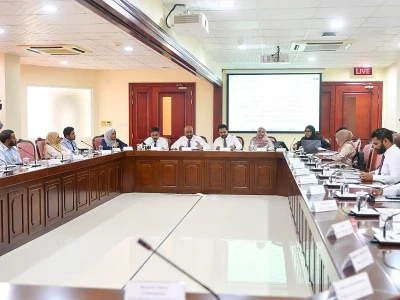
Probe on in 900 state company cases, anti-graft watchdog says
Among the government-owned companies, the ACC has received the highest number of complaints against Fenaka and RDC.
By
Aishath Fareeha Abdulla
The Anti-Corruption Commission (ACC) says it has received 890 cases related to state owned enterprises.
The ACC was summoned to the State-Owned Enterprises Committee of Parliament on Monday.
Speaking in the committee, ACC Chairman Adam Shamil said the ACC has received a total of 890 cases related to government companies. These include 316 cases in the preliminary stage and 580 cases yet pending investigation, he said.
Concerned over how many complaints related to government companies are with the ACC, Shamil noted that the number of cases filed on the eves of elections increase.
"This is a worrying number. Of these, I would like to mention that there have been two very sensitive times in the last five years, especially since we took over. There have been presidential elections and a transitional period. And then there was parliamentary elections," he said.
Shamil said many cases were filed during the presidential election and that is how it has been for a long time.
The ACC also noted:
-
The former ACCs have not looked into whether the public companies have corrected the problems as per ACC instructions until 2022
-
One of the first things the current commission did was to establish a system to monitor compliance with notices issued to companies and institutions
He said MVR 273,108.53 has been recovered from government-owned companies through the ACC so far this year. The ACC president noted that a total of MVR 600,000, along with the money due to government institutions have been recovered so far this year.
Among the government-owned companies, the ACC has received the highest number of complaints against Fenaka and RDC, the commission said on Monday.
Shamil noted that the cooperation of employees in investigating cases against such persons improves as soon as the heads of companies change.
“Very often, what has happened in companies is that it is difficult to find the right documents, due to their documentation processes,” he said.
The ACC noted that it is working with the Privatization and Corporatization Board to change the rules on sanctions against companies.
Replying to a question on the prosecution of cases investigated by the ACC, an ACC member said that 38 cases related to SOEs are still under duty prosecution.
"We are going for duty prosecution because we believe that an investigation has been conducted in the case. However, we will have a decision on the case only if the Prosecutor General's Office gives a word on the case, that there is sufficient evidence," the ACC member pointed out, adding that such issues within the system can be resolved through discussion.




